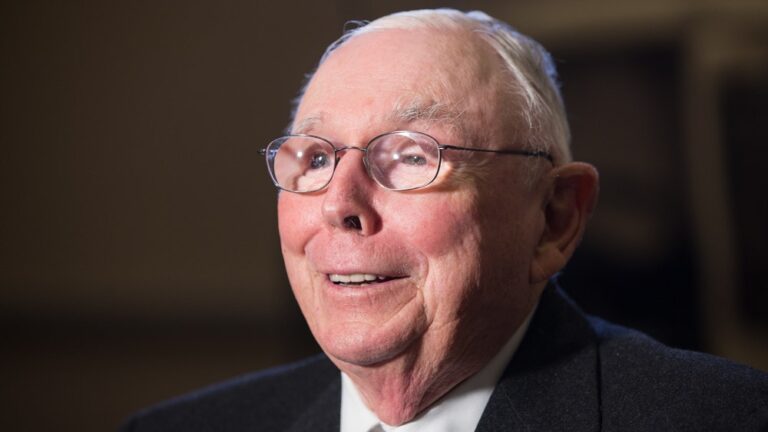
[ad_1]

Billionaire Charlie Munger, the renowned investment partner of Berkshire Hathaway Inc. CEO Warren Buffett, says people should strive for greater happiness. Expressing his perplexity toward the current lack of contentment among people, Munger emphasized the disparity between present circumstances and the hardships endured throughout history.
Addressing attendees at the annual meeting of the Daily Journal, the 99-year-old highlighted his own formative years during the 1930s. Munger recalled the profound challenges Americans faced during the Great Depression, expressing his surprise at the comparatively lower levels of happiness observed today.
Munger explained, “It’s weird for somebody my age, because I was in the middle of the Great Depression when the hardship was unbelievable.”
Studies prove Munger is right — Americans aren’t as happy as they once were. The General Social Survey, which has been assessing American happiness levels since 1972, reveals a recent shift. Prior to the pandemic, more people reported being “very happy” than “not too happy.” But in the latest survey, a record 24% expressed being “not too happy,” while a record low of 19% claimed to be “very happy.”
Don’t Miss:
Munger also expressed concern about the role envy plays in people’s lives today. He pointed out that before the 1800s, life was more challenging, lacking basic comforts and conveniences such as the printing press, air conditioning and modern medicine. Munger’s comments highlight the significant progress made in recent centuries.
According to him, “It is the nature of our species that we look around us at other people and are envious of them if they have more than we do. That envy has always been a big problem.”
Studies suggest that about 75% of individuals experience envy toward others each year, supporting Munger’s observations about the prevalence of envy in today’s world.
A study from the University of California, San Diego published in Basic and Applied Social Psychology reveals that younger adults experience more envy compared to older adults. The research shows that younger people are envious of looks and various other things, with both men and women more likely to envy peers of similar age.
To stay updated with top startup news & investments, sign up for Benzinga’s Startup Investing & Equity Crowdfunding Newsletter
The study surveyed over 900 people ages 18 to 80 and found that over three-fourths of participants reported experiencing envy in the past year. Envy declines with age, with around 80% of those younger than 30 feeling envious compared to 69% of people older than 50.
Munger acknowledged the persistence of discontent among many people, despite significant improvements in various aspects of life. He noted that even when things have improved by around 600%, there will always be people who possess more, fueling feelings of unhappiness and perceived mistreatment.
Healthcare & Investing
It’s no secret the world is becoming increasingly online. The pandemic has certainly contributed to the rise in social isolation. This, among many others, are likely contributing factor to decreased happiness around the globe. But this shift has also opened the door to a number of opportunities for individuals looking to increase their access to healthcare. For example, Amazon.com, Inc. recently rolled out their subscription product, Amazon Pharmacy and startups like iRemedy are helping to increase access to healthcare while decreasing costs. While it’s not a perfect solution, these will cut costs and decrease healthcare burdens on those affected.
See more on startup investing from Benzinga:
Don’t miss real-time alerts on your stocks – join Benzinga Pro for free! Try the tool that will help you invest smarter, faster, and better.
This article Charlie Munger Says Hardships Faced In His Day Were ‘Unbelievable,’ But People Today Are Miserable, Despite Having it Easy — He Blames Envy originally appeared on Benzinga.com
.
© 2023 Benzinga.com. Benzinga does not provide investment advice. All rights reserved.
[ad_2]